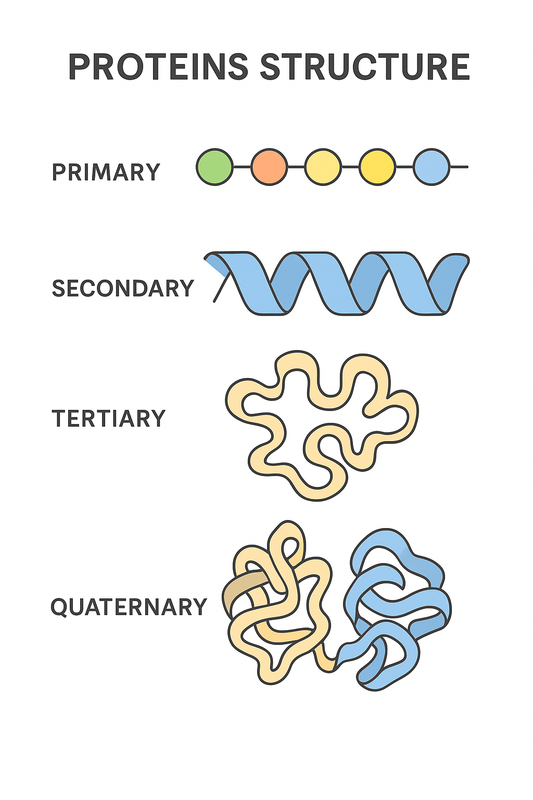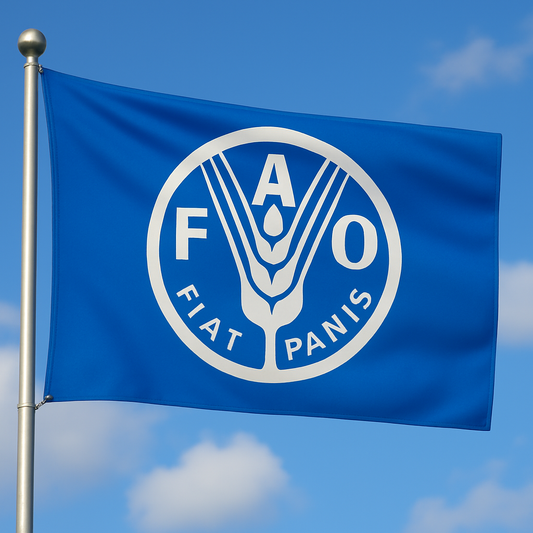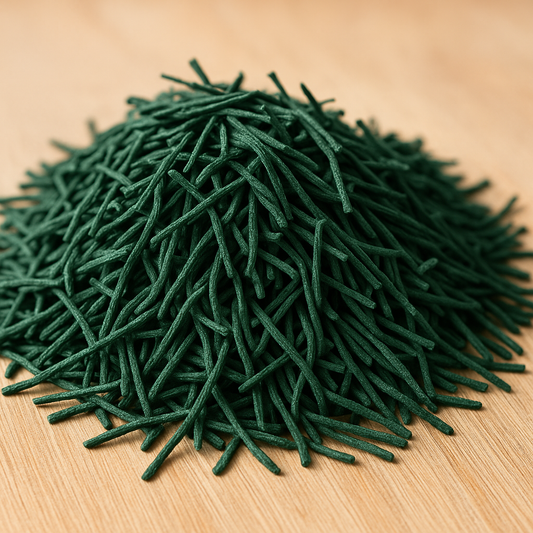
Is eating insects a taboo?
Share
Can you swap a steak of meat with bugs on your menu?
Well, your answer will obviously depend on where you come from. In some places around the globe eating insects is a norm but to others, it is still very much a taboo. In scientific terms, using insects as food it is known as entomophagy. It is not what we normally see with the daring Bear Grylls in the wild, on documentaries. This one means having insects as pretty much a feature in the menu. Entomophagy has been touted as the answer to the world hunger problem by many. Some researchers have even projected that virtually everyone on the planet will be feeding on insects within the next half a century or so. Now, if this is the is a target, then there is work to do to break past the taboos curtailing the practice. Let’s delve in deeper.
Human Entomophagy: Where Are We Now?
If you are not into bugs then it might come as a surprise to you that there are over 1900 edible species among insects! This is according to research done by Wageningen University in the Netherlands in conjunction with UN's Food and Agriculture Organization (FAO). What’s even more interesting is that the practice is actually common in many parts of the globe especially Southeast Asia, Oceania, southern Africa, Central America and the northern part of South America. The research also established that beetles are the leading as a delicacy followed by the likes of caterpillars, bees, wasps and ants, grasshoppers, locusts, crickets, cicadas, leafhoppers, plant hoppers, scale insects and true bug among other.
If you are not into bugs then it might come as a surprise to you that there are over 1900 edible species among insects! This is according to research done by Wageningen University in the Netherlands in conjunction with UN's Food and Agriculture Organization (FAO). What’s even more interesting is that the practice is actually common in many parts of the globe especially Southeast Asia, Oceania, southern Africa, Central America and the northern part of South America. The research also established that beetles are the leading as a delicacy followed by the likes of caterpillars, bees, wasps and ants, grasshoppers, locusts, crickets, cicadas, leafhoppers, plant hoppers, scale insects and true bug among other.
Which countries are eating insects?
Of course, the favorite insects on the menu vary from the place to place. In Mexico for example, you will find ants eggs soaked in butter, chocolate- covered locusts and candy-covered worms. The same can be said of a country like Brazil and the Netherlands where it is common to find ants and mealworms being spiced up with chocolate. Larvae are something huge in parts of China where some people love them roasted or fried. Africa has also embraced entomophagy for long. In fact, the practice is more common in Africa than in any other part of the world. Bugs like termites, caterpillars, crickets and many others have been part of the menu for ages. Entomophagy in Africa is dominant in countries like the Democratic Republic of the Congo, Congo, the Central African Republic, Cameroon, Uganda, Zambia, Zimbabwe, Nigeria, and South Africa.
It is estimated that over 2 billion people eat bugs around the world but organizations like UN’s FAO are pushing for more. FAO estimates that the global population will hit around 9 billion by 2050 and they believe diversification of the food sources to include more of insects could be the remedy. There are some hurdles though and one of them is breaking taboos engrained in some countries and people.
Of course, the favorite insects on the menu vary from the place to place. In Mexico for example, you will find ants eggs soaked in butter, chocolate- covered locusts and candy-covered worms. The same can be said of a country like Brazil and the Netherlands where it is common to find ants and mealworms being spiced up with chocolate. Larvae are something huge in parts of China where some people love them roasted or fried. Africa has also embraced entomophagy for long. In fact, the practice is more common in Africa than in any other part of the world. Bugs like termites, caterpillars, crickets and many others have been part of the menu for ages. Entomophagy in Africa is dominant in countries like the Democratic Republic of the Congo, Congo, the Central African Republic, Cameroon, Uganda, Zambia, Zimbabwe, Nigeria, and South Africa.
It is estimated that over 2 billion people eat bugs around the world but organizations like UN’s FAO are pushing for more. FAO estimates that the global population will hit around 9 billion by 2050 and they believe diversification of the food sources to include more of insects could be the remedy. There are some hurdles though and one of them is breaking taboos engrained in some countries and people.

The taboo Of Eating Insects
One problem is that eating insects is still very much a taboo in some regions especially the western world. The main reason why eating them is a cultural taboo in western cultures is that insects are considered as pests. There is a phobia around insects to an extent that no one would want them around the house, let alone munching on them!
Most western cultures associate insects with terrible things like diseases or injuries and disturbances. No wonder you find people rushing to call an exterminator when they spot something like a cockroach around. There is also that misconception that insects are a poor man’s delicacy.
In some countries though, the question of religion comes into the mix. In certain Islamic jurisprudence, for instance, eating scorpions is considered haram but eating locusts is considered okay. Other Islamic jurisprudence even prohibits eating of any animal that creeps.
In Judaism, eating most insects is deemed not Kosher except a few select species of locust-otherwise known as kosher locusts. Buddhists, on the other hand, consider eating most insects to be a breach of the First Buddhist percept which prohibits one from taking life.
According to Anthropologist Marvin Harris-the Author of the Book titled Good to Eat, some cultures consider it taboo to hunt for smaller insects if there are other protein sources available e.g from poultry, cattle etc. They are however cases where both entomophagy and animal husbandry is practiced particularly in African countries like South Africa, Botswana, and Zimbwabwe.
Given these hurdles, how can entomophagy be promoted?
One problem is that eating insects is still very much a taboo in some regions especially the western world. The main reason why eating them is a cultural taboo in western cultures is that insects are considered as pests. There is a phobia around insects to an extent that no one would want them around the house, let alone munching on them!
Most western cultures associate insects with terrible things like diseases or injuries and disturbances. No wonder you find people rushing to call an exterminator when they spot something like a cockroach around. There is also that misconception that insects are a poor man’s delicacy.
In some countries though, the question of religion comes into the mix. In certain Islamic jurisprudence, for instance, eating scorpions is considered haram but eating locusts is considered okay. Other Islamic jurisprudence even prohibits eating of any animal that creeps.
In Judaism, eating most insects is deemed not Kosher except a few select species of locust-otherwise known as kosher locusts. Buddhists, on the other hand, consider eating most insects to be a breach of the First Buddhist percept which prohibits one from taking life.
According to Anthropologist Marvin Harris-the Author of the Book titled Good to Eat, some cultures consider it taboo to hunt for smaller insects if there are other protein sources available e.g from poultry, cattle etc. They are however cases where both entomophagy and animal husbandry is practiced particularly in African countries like South Africa, Botswana, and Zimbwabwe.
Given these hurdles, how can entomophagy be promoted?
Promoting Insects As Tasty

Breaking taboos is always easier said than done but promoting tasty insect-based food could come in handy to break down some of the beliefs and perceptions. This is particularly the case among those who are even disgusted at the thought of munching on insects. The key could be about trying to change people’s attitudes. Yes, some of those people can eat things like crabs and lobsters comfortably but can’t just stand the sight of insects as food! Quite an irony, right?
One study published in the Frontiers in Nutrition compared the promotional strategies used in marketing insect based food. This study found that instead of promoting entomophagy as healthy and environmentally friendly, it would be better to create hypes around insects being luxurious and super tasty. This can surely help swing the attitudes right? This can certainly work as we are seeing a rising popularity in food infused with insects.
Some companies are making creative food products with insects as ingredients e.g protein bars, protein-shakes, insect-candy/snacks/crispbread, insect flour, insect pasta among Others. There are even chefs and restaurants specializing on insect catering!
Final Remarks
That’s it! Now you know a thing or two about entomophagy, the taboos around it and perhaps some ways to bring down the barriers.
That’s it! Now you know a thing or two about entomophagy, the taboos around it and perhaps some ways to bring down the barriers.
Just one thing left to do: try edible insects yourself...you'll be surprised!




